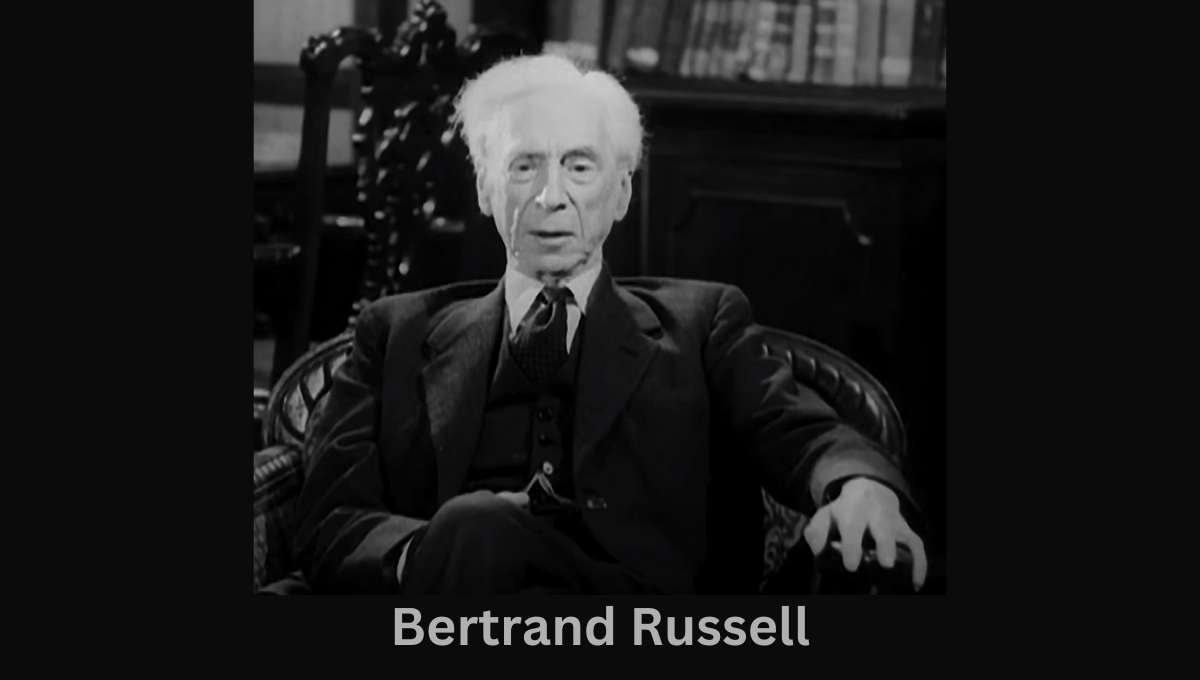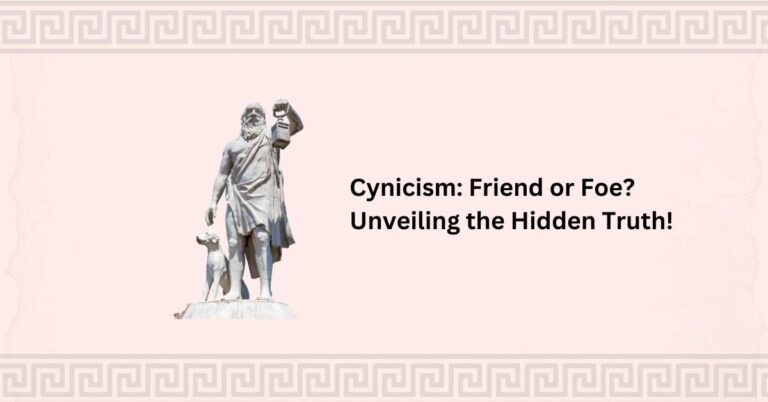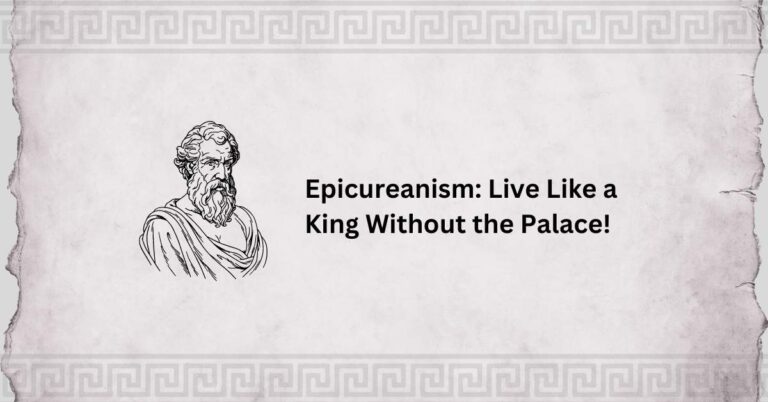Analytic Method in Philosophy: A Sharp Tool for Deep Thinking!
Ever tried to explain something complicated, only to get tangled up in your own words? That’s where clarity and precision step in, especially in philosophy. When ideas get messy, understanding goes out the window. This is where the analytic method in philosophy plays a starring role. It’s like a toolkit that philosophers use to cut through the noise, making sure arguments are sharp, clear, and straight to the point.
The analytic method isn’t just a trend; it’s been a game-changer in modern philosophy. By focusing on language and logic, it has shaped how we think about big questions. This blog post is here to unpack that. We’ll dig into what the analytic method is all about, where it came from, and why it matters today.
So, what’s on the menu? We’ll take a look at the history behind the analytic method, its key features, and the thinkers who brought it to life. We’ll also explore how this method has shaped philosophical thought and why it still matters in our current conversations. Ready to get into it?
1. Historical Background of the Analytic Method
Origins: The Early 20th Century Revolution
The analytic method didn’t just pop up out of nowhere; it has roots deep in the early 20th century. Picture this: philosophy was in a bit of a muddle, with grand ideas floating around but no clear way to pin them down. Enter Bertrand Russell, G.E. Moore, and later, Ludwig Wittgenstein—the heavyweights who decided it was time to clean house. Russell, with his sharp mind, started dissecting language and logic, asking, “Are we even talking sense?” Moore joined in, championing common sense and clarity over confusing jargon. And Wittgenstein? Well, he took the baton and ran with it, exploring how language shapes our reality.
Development: The Evolution of Analytic Philosophy
As the years rolled on, the analytic method began to evolve. It wasn’t just about slicing and dicing arguments anymore. Movements like logical positivism stepped into the spotlight, saying, “If it can’t be verified, it’s not worth our time.” Philosophers like the Vienna Circle took this seriously, pushing for a science-like rigor in philosophy. Then came ordinary language philosophy, which turned things on their head by suggesting that everyday language might hold the answers to philosophical puzzles. It was like finding wisdom in the mundane.
Contrasts with Continental Philosophy: Two Paths, One Goal
Now, what about continental philosophy? Think of it as the artistic cousin of the analytic method. While analytic philosophy was all about clarity and precision, continental philosophy was more interested in the big, abstract questions—existence, meaning, and the human experience. If the analytic method is like a surgeon with a scalpel, continental philosophy is more like a painter with a brush. Both valuable, but very different tools for understanding the world.
2. Key Features of the Analytic Method
Emphasis on Language: The Heart of the Analytic Method
One of the standout features of the analytic method in philosophy is its laser focus on language. Ever heard the saying, “Words matter”? For analytic philosophers, that’s an understatement. They believe that by carefully analyzing the way we use language, we can clear up a lot of philosophical confusion. Imagine trying to solve a puzzle with pieces that don’t quite fit—language analysis is like trimming those pieces to perfection. By breaking down sentences, philosophers can pinpoint where misunderstandings occur and offer clarity. This approach ensures that everyone is on the same page before diving into the deeper issues.
Logical Precision: The Backbone of Analytic Philosophy
In the world of analytic philosophy, logic isn’t just a tool—it’s the foundation. Philosophers using the analytic method rely on formal logic to structure their arguments in a way that leaves little room for error. Think of it as building a house with perfectly measured bricks. If one brick is out of place, the whole structure could collapse. By using logical tools, philosophers can construct arguments that are not only clear but also unassailable. This focus on precision helps avoid the slippery slopes that can derail more abstract philosophical discussions.
Argumentation: The Art of Clear Reasoning
When it comes to argumentation, the analytic method doesn’t mess around. Forget flowery language and vague ideas—this method is all about clarity and rigor. Philosophers are trained to craft arguments that are as tight as a drum, leaving no room for misinterpretation. The goal is to make sure that every step in the argument is crystal clear, leading to a conclusion that’s hard to refute. And metaphysical speculation? It’s not their cup of tea. Analytic philosophers prefer to stay grounded, focusing on what can be clearly understood and logically defended.
3. Major Contributors to Analytic Philosophy
Bertrand Russell: The Architect of Logical Analysis

Bertrand Russell was a giant in the world of analytic philosophy. His contributions, especially in logic, laid the groundwork for much of what followed. Russell wasn’t satisfied with vague philosophical ideas—he wanted precision. His theory of descriptions is a prime example. It’s a method he developed to handle sentences that seem simple but hide complex logical structures. Think of it as untangling a knot; Russell’s approach helped philosophers see the underlying structure of language, making tricky philosophical problems easier to tackle.
Ludwig Wittgenstein: The Philosopher Who Changed His Mind
Ludwig Wittgenstein is a fascinating figure because he didn’t just influence analytic philosophy once—he did it twice. His early work, Tractatus Logico-Philosophicus, was all about the idea that the structure of language mirrors the structure of reality. It was like building a map where every word had a precise spot. But Wittgenstein didn’t stop there. Later in life, he turned his own ideas on their head with Philosophical Investigations, arguing that meaning comes from how words are used in everyday life, not just from their logical structure. His shift in thinking helped move analytic philosophy in new and unexpected directions.
G.E. Moore: The Defender of Common Sense
If Russell was the architect, G.E. Moore was the bulldozer clearing the way. Moore had no patience for philosophical nonsense. He believed in the power of common sense and used it as a weapon against abstract, overcomplicated theories. His famous “Here is one hand, and here is another” argument was a simple but powerful defense of the reality of the external world. Moore also made significant contributions to ethical theory, insisting that moral goodness is a simple, indefinable quality. His straightforward approach made him a cornerstone of the analytic tradition.
Contemporary Figures: Carrying the Torch Forward
The story of analytic philosophy didn’t end with Russell, Wittgenstein, and Moore. Contemporary philosophers like Saul Kripke and Hilary Putnam have kept the analytic tradition alive and well. Kripke’s work on naming and necessity shook up the philosophy of language, challenging ideas that had been taken for granted for decades. Putnam, with his concept of semantic externalism, argued that the meanings of our words aren’t just in our heads—they’re connected to the world around us. These thinkers, along with many others, have continued to push the boundaries of what the analytic method can do.
4. Applications of the Analytic Method
Philosophy of Language: Finding Meaning in Words
The analytic method has found a natural home in the philosophy of language. Here, it’s all about getting to the bottom of how words work. Analytic philosophers use this method to dissect concepts like meaning, reference, and truth. Imagine trying to figure out why the word “cat” refers to a furry animal and not something else entirely. By analyzing the logical structure of language, philosophers can clarify these relationships. This has led to deeper insights into how we communicate, understand each other, and even how we think about reality itself.
Epistemology: The Quest for Knowledge
In epistemology, the study of knowledge, the analytic method shines as a beacon of clarity. Philosophers use it to untangle tricky questions like “What does it mean to know something?” and “When is a belief justified?” The method helps cut through the fog of complex ideas, providing clear frameworks to tackle age-old problems. For instance, in debates about skepticism—whether we can truly know anything at all—the analytic method offers tools to argue for or against the skeptic’s doubts. It’s like having a flashlight in a dark room, helping to illuminate the pathways to understanding.
Ethics and Meta-Ethics: Defining the Good
The analytic method also makes a strong showing in ethics and meta-ethics. Here, it’s all about getting to the heart of moral questions. What does it mean to say something is “good” or “bad”? Analytic philosophers use logical precision to analyze these concepts, stripping away confusion and ambiguity. This method has been particularly useful in debates about moral realism—the idea that moral facts exist independently of our beliefs—and anti-realism, which argues the opposite. By applying the analytic method, philosophers can clarify what’s really at stake in these debates, making complex ethical theories more accessible and understandable.
5. Criticisms of the Analytic Method
Overemphasis on Language: Missing the Big Picture?
One major criticism of the analytic method is its overemphasis on language analysis. Critics argue that by focusing so much on dissecting how we use words, analytic philosophers might be missing out on more substantive philosophical issues. Imagine spending all your time examining the labels on jars while ignoring the contents inside. Some believe this approach can lead to an endless debate about semantics rather than addressing the core of philosophical questions.
Narrow Scope: A Limited View of Philosophy?
Another point of contention is the method’s narrow scope. Critics suggest that the analytic approach is too focused on logical and linguistic precision, potentially overlooking practical and existential concerns. For example, questions about human experience, emotion, or the meaning of life might seem sidelined in favor of technical debates. This narrow focus might make analytic philosophy appear disconnected from the real-world issues people face daily.
Response to Criticisms: The Value of Precision and Clarity
Proponents of the analytic method have strong responses to these criticisms. They argue that the focus on language and logic is not a limitation but a strength. By ensuring clarity and rigor, analytic philosophy provides a solid foundation for understanding complex ideas. Think of it as sharpening the tools before using them—without clear definitions and precise arguments, it’s easy to get lost in philosophical debates. Moreover, many analytic philosophers are aware of and address practical concerns, showing that the method can indeed contribute valuable insights into real-world issues. So, while the method might seem narrowly focused, it’s actually working to clear the path for deeper philosophical exploration.
6. The Future of the Analytic Method
Current Trends: Analytic Philosophy Today
Today, analytic philosophy continues to thrive, with its influence evident across academic philosophy. The method’s focus on clarity and logical structure remains a cornerstone of many philosophical discussions. Modern philosophers use the analytic approach to tackle complex issues in ethics, metaphysics, and beyond, refining arguments and exploring new ideas. This ongoing impact shows that the method’s commitment to precision and rigor is still highly relevant in the philosophical world.
Interdisciplinary Connections: Bridging Philosophy with Other Fields
The analytic method is increasingly making waves beyond traditional philosophy. It’s forming exciting connections with fields like cognitive science, linguistics, and artificial intelligence. For instance, cognitive scientists use analytic techniques to better understand how we process language and make decisions. Linguists apply the method to dissect language structure and meaning. Even artificial intelligence researchers borrow from analytic philosophy to improve algorithms and machine learning models. These interdisciplinary links demonstrate that the analytic method is not just surviving but thriving in new and innovative ways.
Potential Directions: What’s Next for Analytic Philosophy?
Looking ahead, the analytic method is likely to evolve in response to contemporary challenges. Philosophers may continue to integrate insights from other disciplines, leading to new approaches and applications. For instance, as technology advances, analytic philosophy might explore issues related to digital ethics or the philosophy of technology. Additionally, there may be a push to address broader existential and practical concerns, making the method more relevant to everyday life. As it adapts and grows, the analytic method will likely remain a vital tool for unraveling complex philosophical questions and shaping future debates.
Conclusion
The analytic method in philosophy has proven to be more than just a trend; it’s a powerful tool for clarity and precision in understanding complex ideas. From its early 20th-century origins with thinkers like Bertrand Russell and Ludwig Wittgenstein, to its current applications across various fields, this method has continually reshaped the landscape of philosophical inquiry.
By focusing on the structure of language, the analytic method has provided valuable insights into how we communicate, understand knowledge, and engage with ethical questions. Its emphasis on logical precision and clear argumentation helps avoid confusion and brings rigor to philosophical debates.
While it has faced criticism for its narrow focus and overemphasis on language, supporters argue that its strengths lie in its commitment to clarity and depth. As analytic philosophy continues to evolve, its integration with other disciplines and its response to contemporary challenges suggest a vibrant future ahead.
So, next time you find yourself tangled in philosophical questions or debating with a friend, remember the analytic method. It’s not just a philosophical tool but a way to bring order to our thoughts and discussions.



